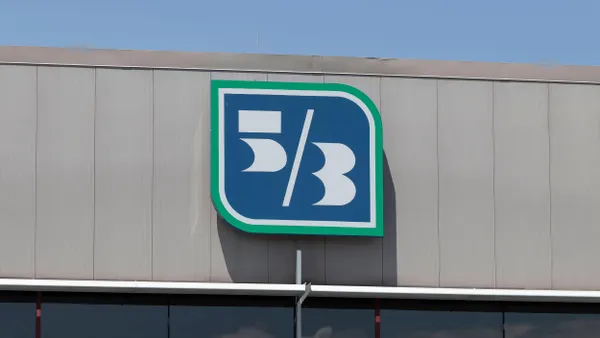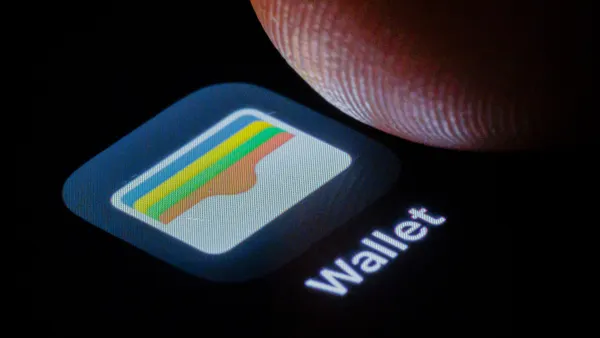Dive Brief:
-
Google is partnering with Citigroup and Stanford Federal Credit Union to offer checking accounts beginning next year in a project code-named Cache, The Wall Street Journal reported Wednesday.
-
Checking accounts may be an advantageous jumping-off point for Google in banking. They offer loads of personal information, including salary, where people shop and what bills they pay. Additionally, they have a long shelf life: The average U.S. adult has used the same primary checking account for about 16 years, according to a Bankrate survey.
-
The news comes during the same week Facebook announced it would roll out a payment service. Several other tech companies have inched into the payments space this year. Apple in August notably launched a payment card backed by Goldman Sachs.
Dive Insight:
Tech partnerships with banks have been high on the radar of regulators and lawmakers in past months. Facebook executives faced numerous questions on Capitol Hill this summer and fall regarding the proposed launch of the Libra digital currency. And in response to a Capital One data breach uncovered in July, members of the House wrote a letter to persuade Treasury Secretary Steven Mnuchin to designate the cloud-bearing subsidiaries of Amazon, Google and Microsoft as systemically important.
Even when successful, such partnerships still draw fire. Goldman Sachs CEO David Solomon last month praised the Apple Card rollout as the "most successful credit card launch ever." But this week, the New York Department of Financial Services began investigating claims that the card’s algorithm discriminates against women.
Cache is far from Google's first foray into financial services. The tech giant launched its Google Wallet in 2011.
Cache users would access their checking accounts through Google Pay. Google has concentrated its effort, largely in India, to gather users for the app. Google Pay is on track to have 100 million users worldwide in 2020, up from 39 million in 2018, according to estimates from Juniper Research reported by The Journal. By comparison, Apple Pay had about 140 million users last year.
Google executive Caesar Sengupta told The Journal the company will offer loyalty programs but has not yet decided whether users will be charged fees for the checking accounts. Google also pledged it wouldn’t sell checking-account users’ financial data. The company said it doesn’t use Google Pay data for advertising purposes and doesn’t share that data with advertisers.
That could help Google foster trust among its customer base. A McKinsey & Co. survey last month showed 58% of people said they would trust a financial services product from Google. That ranks higher than Apple or Facebook but lower than Amazon.
Sengupta said Google would "partner deeply with banks and the financial system," meaning its partners' brands, not Google's, would be front and center on the accounts. "It may be the slightly longer path, but it’s more sustainable," he said, adding that the company would rely on its partners for regulatory compliance.
The partnership could help Citi draw more customers without expanding its branch presence, which is already slighter than most big banks. “We have to be where our customers are,” said Anand Selva, who heads Citigroup’s consumer bank.













